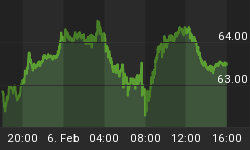It has been an interesting week indeed for the Federal Reserve. Early this week, it was announced that President Obama intends to reappoint Fed Chairman Ben Bernanke to a second term in January, signaling a vote of confidence in him. Bernanke seems to be popular with the administration and with Wall Street, and with good reason. His lending policies have left big banks flush with newly created cash that covers up old mistakes and allows for new ones. By buying up mountains of Treasury debt he has also enabled spending to soar to ridiculous levels that should startle any responsible economist, and scare any American concerned about the value of the dollar. However, these highly sensitive decisions about our money are not made by economists, they are made by politicians. Bernanke, like most of his predecessors, is the politician's best friend. However, there is no reason to believe any other central planner would behave any differently, considering the immense political pressure on the Fed.
Fed policies have been as bad for the economy as they are good for politicians and bankers, as the recently released numbers on the debt and deficit demonstrate. For the first time since World War II the annual budget deficit is projected to be over 11 percent of the nation's gross domestic product. It is also projected that by 2019 the national debt will be 68% of GDP. Our path, if unchanged, is completely untenable.
The administration claims that it inherited a dire situation from the last administration, which is absolutely true. However, that hasn't stopped them from accepting all the policies and premises that got us here, and accelerating those policies to rapidly make a bad situation much worse. The bailouts started with the last administration. They have gotten bigger with this one. The last administration gave us expanded government involvement in healthcare with a new prescription drug benefit. This administration gave us a renewal and expansion of SCHIP, and now the current healthcare takeover attempts. In reality, we can afford none of this, but shady monetary policy allows Washington to continue along its merry way, aggravating all our economic problems.
Not everyone in government finds it acceptable that the Fed wields so much power and privilege in secrecy. Last week, a federal judge ruled against Fed secrecy, compelling them to release under the Freedom of Information Act information regarding which banks received emergency loans, and under what terms. The Fed will, of course do everything in its power to fight this ruling and it is certainly not the last word on the issue. Still, it is encouraging to see that the interests of the taxpayers were defended victoriously in court, while the Fed only sees the plight of its big banker friends.
Meanwhile HR 1207 and S604, legislation to open up the Fed's books to a complete audit, continue to gain momentum in Congress as the people continue to insist on real transparency of the Federal Reserve. One way or another, the days of Fed autonomy are coming to an end, as well they should. No one should have the power to debauch the currency and gut the economy as they do. It is time they answered for their actions, so the people can understand that we truly are better off with freedom instead of Fed tyranny.















